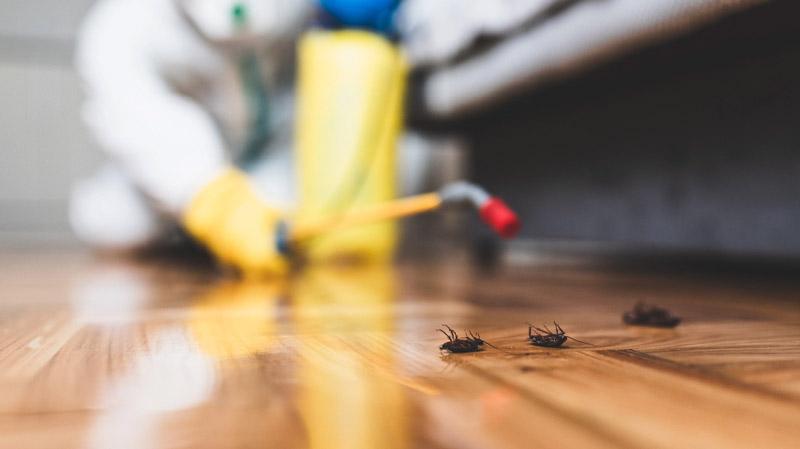Notifications

8 minutes, 22 seconds
-38 Views 0 Comments 0 Likes 0 Reviews

Pest infestations can start small, but if left unchecked, they can quickly escalate into major problems that threaten the integrity of your property and the health of those living or working there. Whether it's ants in your kitchen, rodents in your attic, or termites slowly eating away at your home's structure, acting quickly is key to preventing a full-blown infestation. In this article, we’ll discuss the importance of early pest detection and provide practical tips for controlling pest problems before they get out of hand.
The Importance of Early Pest Detection
The earlier you catch a pest problem, control pest and eliminate. Many pests, such as termites or rodents, can cause significant damage before they’re even noticed. In the case of termites, they often live undetected for months or even years, slowly deteriorating the wooden structures of a building. Similarly, rodents can chew through wiring, insulation, and walls, which can lead to costly repairs. By detecting pests early, you can avoid long-term damage and health risks, such as the spread of diseases carried by insects and rodents. Routine inspections and vigilance are critical to catching pest problems before they spread too far.
Common Early Signs of Pest Infestation
Pests are often elusive, but there are several early signs that indicate a problem. If you notice any of these signs, it's essential to take action right away. For example, droppings, chewed wires, or holes in food packaging are clear indicators of rodents, while small piles of sawdust around wooden structures may point to termites. Other signs include hearing scratching sounds in walls, seeing ants or other insects on your floors, and noticing stains or marks around entry points. Being proactive in identifying these signs allows you to take swift action before the infestation worsens.
Prevention Strategies to Stop Pests Before They Enter
Preventing pests from entering your property is one of the most effective ways to control pest problems. Start by sealing any cracks, gaps, or holes in your walls, windows, and doors. Pests often find their way inside through these small openings, so ensuring that your home or business is properly sealed is a critical first step. In addition, maintaining proper sanitation can discourage pests from entering in the first place. Regularly cleaning food spills, securing trash bins, and storing food in airtight containers will reduce food sources that attract pests. Eliminating standing water and fixing leaks can also make your property less inviting to insects like ants and cockroaches.
When to Call a Professional Pest Control Service
While DIY measures can be effective for minor pest problems, some infestations require the expertise of a professional pest control service. If you notice a significant increase in the number of pests or if you’re dealing with pests that are difficult to manage (like termites, bedbugs, or rodents), it’s best to call a professional. Exterminators have the experience and tools to quickly assess the situation, identify the type of pest, and recommend the most effective treatment. Moreover, professionals can provide solutions that are both safe and effective, ensuring that your property is treated without causing harm to your health or the environment. A pest control professional can also offer ongoing maintenance and monitoring to ensure that pests don’t return.
Using Traps and Baits Effectively
For some pests, simple traps and baits can be highly effective in controlling the infestation. Rodent traps, for example, can quickly reduce the number of mice or rats in your home, especially if you place them along common pathways such as walls, baseboards, and near food sources. Similarly, insect baits designed for specific pests like ants or cockroaches can help eliminate entire colonies. Be sure to place these traps and baits strategically and check them regularly. If you find that the traps aren’t working or the problem is persisting, it may be time to escalate the situation by bringing in a professional pest control service.
Ongoing Maintenance to Prevent Future Infestations
Once you've addressed an infestation, ongoing maintenance is crucial for preventing future pest problems. Regular inspections by a professional pest control service can help identify early signs of pests before they have a chance to spread. Additionally, seasonal treatments can keep pests at bay. For example, termite treatments are often done in the spring or fall, when termites are most active. It’s also important to continue practicing preventive measures such as sealing entry points, keeping your property clean, and ensuring proper drainage. By staying vigilant and committing to regular pest control efforts, you can keep your property safe from recurring infestations.

The Cost of Ignoring Pest Problems
Many people delay pest control when they first notice an issue, hoping it will resolve on its own or that the problem isn’t serious enough to warrant professional intervention. However, ignoring a pest problem can lead to costly repairs and health issues down the road. For example, termite damage can go unnoticed for months or years, and by the time it’s discovered, the damage may be extensive and expensive to fix. Similarly, rodents can cause electrical fires, or pests like cockroaches can spread bacteria that lead to illness. The longer you wait to address a pest problem, the higher the costs associated with repairs and potential health risks. By taking action early, you can save money and protect your property.
Conclusion
Controlling pest problems before they spread is crucial for maintaining a safe, healthy, and damage-free property. Early detection, prevention strategies, and professional intervention are all important elements in controlling pest problems effectively. By taking proactive steps to seal entry points, maintain cleanliness, and monitor for signs of pests, you can avoid major infestations and the associated costs. And when problems do arise, professional pest control services can offer fast and reliable solutions that ensure pests are dealt with efficiently. Don’t wait for a minor issue to become a major problem—take control of pest problems early and keep your property safe from harm.

